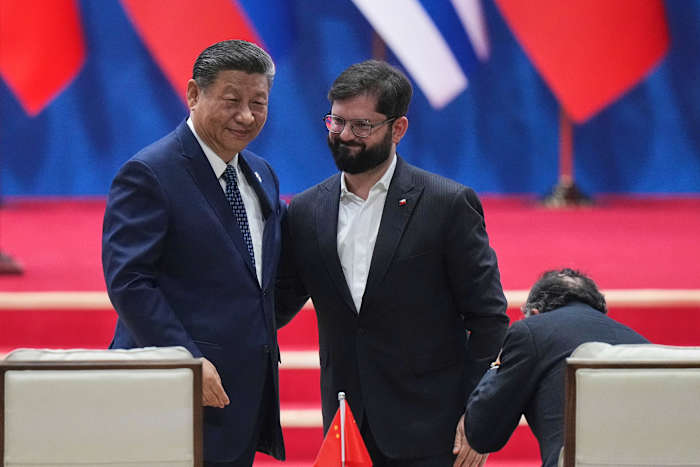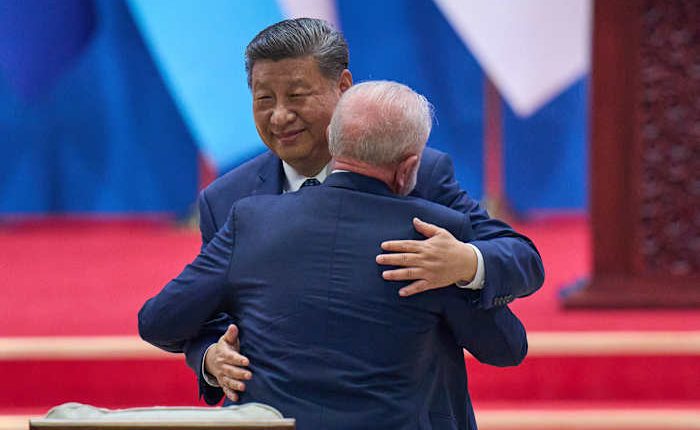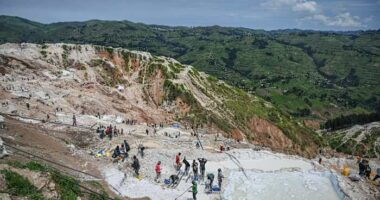Share this @internewscast.com

TAIPEI – In response to President Donald Trump’s trade war, China is actively working to bolster its alliances with other nations. This strategic move was evident as China and leaders from Latin America came together to present a united front at an event held on Tuesday in Beijing.
Positioning itself as a stable and dependable trade and development partner, China’s leaders are contrasting their approach with the uncertainty stemming from Trump’s tariff policies and other economic measures.
A significant development occurred on Monday when Beijing and Washington announced progress in the tariff situation. Following weekend discussions in Geneva, Switzerland, both nations decided to reduce the elevated tariffs for 90 days to facilitate further negotiations.
Having moved to defuse antagonisms with the U.S., Chinese President Xi Jinping said China stands ready to “join hands” with Latin countries “in the face of seething undercurrents of pure political and bloc confrontation and the surging tide of unilateralism and protectionism.”
“There are no winners in tariff wars or trade wars,” Xi said, reiterating a phrase China has used repeatedly when referring to Trump’s policies.
He was speaking to the China-CELAC, or Community of Latin American and Caribbean States, Forum, which began in 2015. The presidents of Brazil, Chile and Colombia were among the Latin American and Caribbean officials attending.
Xi announced five programs, focused on political exchanges, economic development, cultural and academic exchanges and global security to build closer ties between China and Latin American nations.
He promised to boost imports from the region and to encourage Chinese companies to increase their investments there. He announced a new 66 billion yuan ($9.2 billion) credit line to support Latin American and Caribbean financing.
China also plans to expand cooperation in clean energy, 5G telecommunications, the digital economy, artificial intelligence and global security.
China’s trade with the region has been growing rapidly, exceeding $500 billion for the first time last year. Much of that growth has come from increased Chinese imports of farm goods including soybeans and beef, and energy imports such as crude oil, iron ore and critical minerals.
Beijing’s investments in the region through Xi’s Belt and Road Initiative, or BRI, have included installing 5G networks and building ports and hydropower plants.
Colombian President Gustavo Petro announced Monday that his country would formally join the BRI – in a vote of confidence after several Chinese projects in Latin America hit snags in recent months.
In February, Panama became the first Latin American country to quit the initiative under pressure from the U.S. And earlier this month, Chinese electric vehicle maker BYD and stainless steel producer Tsingshan announced they were abandoning plans to build lithium cathode plants in Chile due to falling lithium prices.
In other pledges, Beijing plans to invite 300 members from Latin American political parties to China annually for the next three years and facilitate 3,500 government scholarships and various other types of exchanges.
Five Latin American countries will receive visa exemptions for travel to China, with more to follow, Xi said. It was not immediately clear which countries would become visa exempt.
Copyright 2025 The Associated Press. All rights reserved. This material may not be published, broadcast, rewritten or redistributed without permission.












